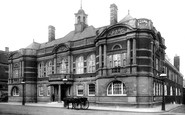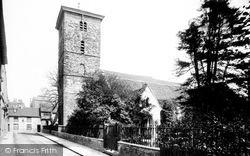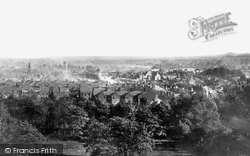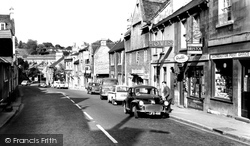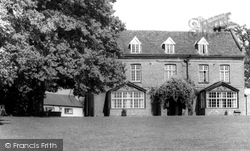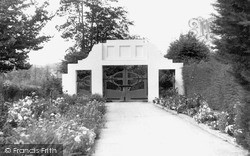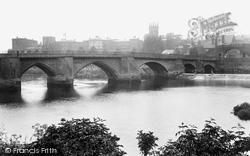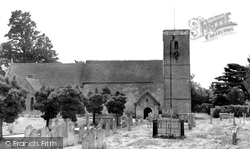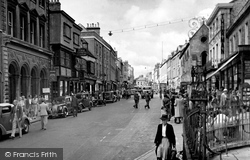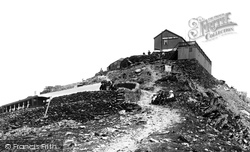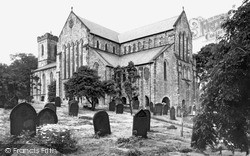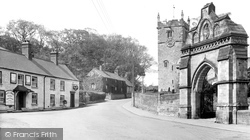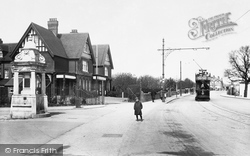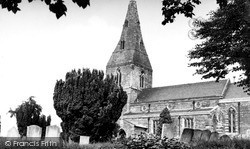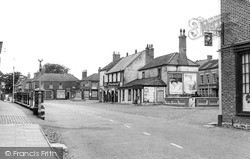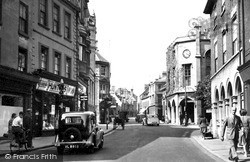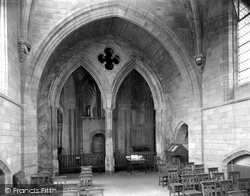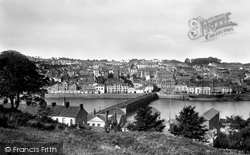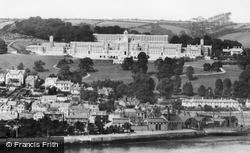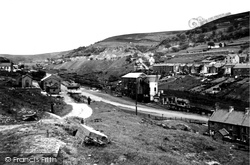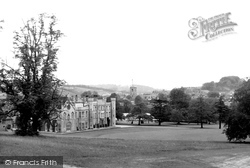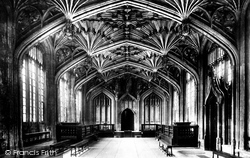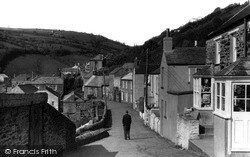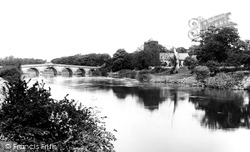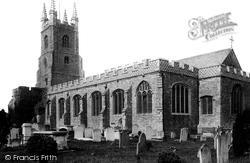Places
Sorry, no places were found that related to your search.
Photos
5 photos found. Showing results 201 to 5.
Maps
83 maps found.
Books
Sorry, no books were found that related to your search.
Memories
1,127 memories found. Showing results 101 to 110.
The Hough
when I was about a year old I moved to the Hough from Englesea Brook, where my parents lived for a couple of years. I went to school at Shavington and was good friends with John Addison, Alan Giller (the latter living ...Read more
A memory of Hough by
A Silvery Dust
What I am about to write was once classified information; but due to the BBC documentary I can disclose and inform you that I had a brother in law who is dead now, but I recall things of which he was to tell me as in confidence: ...Read more
A memory of Monk Sherborne by
The Foresters On The Left
In front is the Crown PH. Later Slough College was built behind the left hand side, in the 60's when we were at the College we used to eat at The Foresters, a pub on the left, pie mash & beans and a light and lime ...Read more
A memory of Slough by
Maesycwmmer And Beyond
Born in 1949, was brought up in Maesycwmmer, lived in Vale View, went to the primary school, and later to Ynysddu Sec. Mod. My parents were Tom and Violet, siblings were Robin [who still lives in the village], Roger R.I.P. ...Read more
A memory of Maesycwmmer by
Hop Picking During The War
I hated hop picking. We started in 1938 to help pay for my sister's uniforms when she went to Ashford County School. At first my mother was slightly ashamed but soon entered ino the spirit and competition as to who ...Read more
A memory of Staplehurst by
Baldock Hostel
I lived in the hostel in the 1960s and liked the area very much. I was a member of the working man's club, the cinema always had up to date films. The town boasted good pubs, there was plenty of work in nearby Letchworth. I had spells ...Read more
A memory of Baldock by
Happy Days
Brought up in Thomas Street from 1947. I remember the cinema at the end of the street, and the Police Station next to the Llanbradach Hotel .As someone mentioned earlier, summer was spent at the outdoor baths, always freezing cold, ...Read more
A memory of Llanbradach by
Brownrigg
The 2012 Brown Rigg School Reunion wil take place over the weekend of 8/9/10th June. There will be a packed programme of entertainment and the opportunity to take a look around Brown Rigg once again. Bellingham hasn't changed very much ...Read more
A memory of Bellingham by
I Remember My Friend Charlie Keeble Of 1 Or 2 Dickens Street
I want to find my childhood friend Charlie Keeble who lived at 1 Dickens Street SW8. He will be 65 or 66 or 67 now. My phone number 0208 679 2746. You were a wonderful friend Charlie and ...Read more
A memory of Battersea by
Family History
Most of my family were born in East and West Mersea, my great-grandfather Robert Percy Woods, born 1890, born in East Mersea and was a farmer ,my great-grandmother Emma French born 1891 West Mersea, her parents were also farmers. ...Read more
A memory of East Mersea by
Captions
1,233 captions found. Showing results 241 to 264.
Like many of the town's churches, it is built from salvage from the Roman town: bricks for arches, quoins and bands, and rubble and septaria (inferior stone nodules) for the rest.
Of the priory, however, little remained even in 1900, save for the remains of the cloisters and a stone arch.
This follows the course of a much older road, the Roman 'Fosse Way', which runs from the 'colonia' of Lincoln to Axminster in Devon, built as a military road around 47 AD.
Two of its three arches were destroyed during the Civil War, and a replacement now stands there. There are many lovely old buildings in the vicinity, such as Bank House.
The entrance arch, with its green gates, was demolished in the 1980s to allow access for lorries building the new leisure centre.
The old bridge with its seven irregular arches dates from the late 13th century, and was partially rebuilt in 1347-58.
The long narrow nave has a fine Norman doorway, and there is a Norman arch in the south wall which led to the priory.
The ornate arched building on the left is the YMCA.
There are several viaducts on the railway; one is 500ft long, and has 14 arches each with a 30ft span.
In 1908 the east end of the chancel was extended and the transepts added; the gradient of the site was such that the architect, Temple-Moore, designed a structure supported on a round-arched undercroft
On the right are the tower of All Saint's Church and the Admiral's Arch.
A much changed view: this shows the old Caversham Hotel on the Reading approaches to Caversham Bridge, with the electric tram No.9 at its terminus.
There are several Norman features inside including the south doorway and chancel arch. The tower is late 13th-century and the spire has chamfers which reach halfway up.
The petrol station in the centre of the market place was the Town Hall with an open arcaded ground floor, the arches now glazed. It dates from 1764, and surely deserved a better fate.
Here, where South Gate meets North Gate, are the town's finest commercial buildings, such as the HSBC bank of 1903 on the left and the Sessions House of 1830 in Gothick style with a pointed arched ground
The twin arches, with the quatrefoil over, are all that remain of the 13th-century Lady Chapel.
The bridge, with its many arches, each of a different span, is 13th-century.
This masterpiece of grand architecture was built (1902-05) by Sir Aston Webb, who was also responsible for the eastern façade of Buckingham Palace and for Admiralty Arch, both in London.
This area, however, was already occupied at a much earlier date - a Bronze Age axe was found at a settlement at Llanerch Padarn higher up the valley. The colliery finally closed in 1982.
From the arches of the Georgian Guildhall the camera looks down White Hart Street. The buildings on the right replace medieval market place encroachment.
The photograph depicts the school's magnificent vaulted roof, which consists of four arches and is beautifully decorated with figures and coats of arms.
At the far end of the lane is the Portloe United Church, and just this side of it are the two arched openings of the old village limekiln.
The seven-arched bridge is made from sandstone. It was designed by John Gwynne, a founder member of the Royal Academy, and constructed in 1771.
It dates from Norman times, but parts of an older arch, containing some Roman bricks, may be seen in the nave. The large west tower was built in the late 15th century.
Places (0)
Photos (5)
Memories (1127)
Books (0)
Maps (83)




